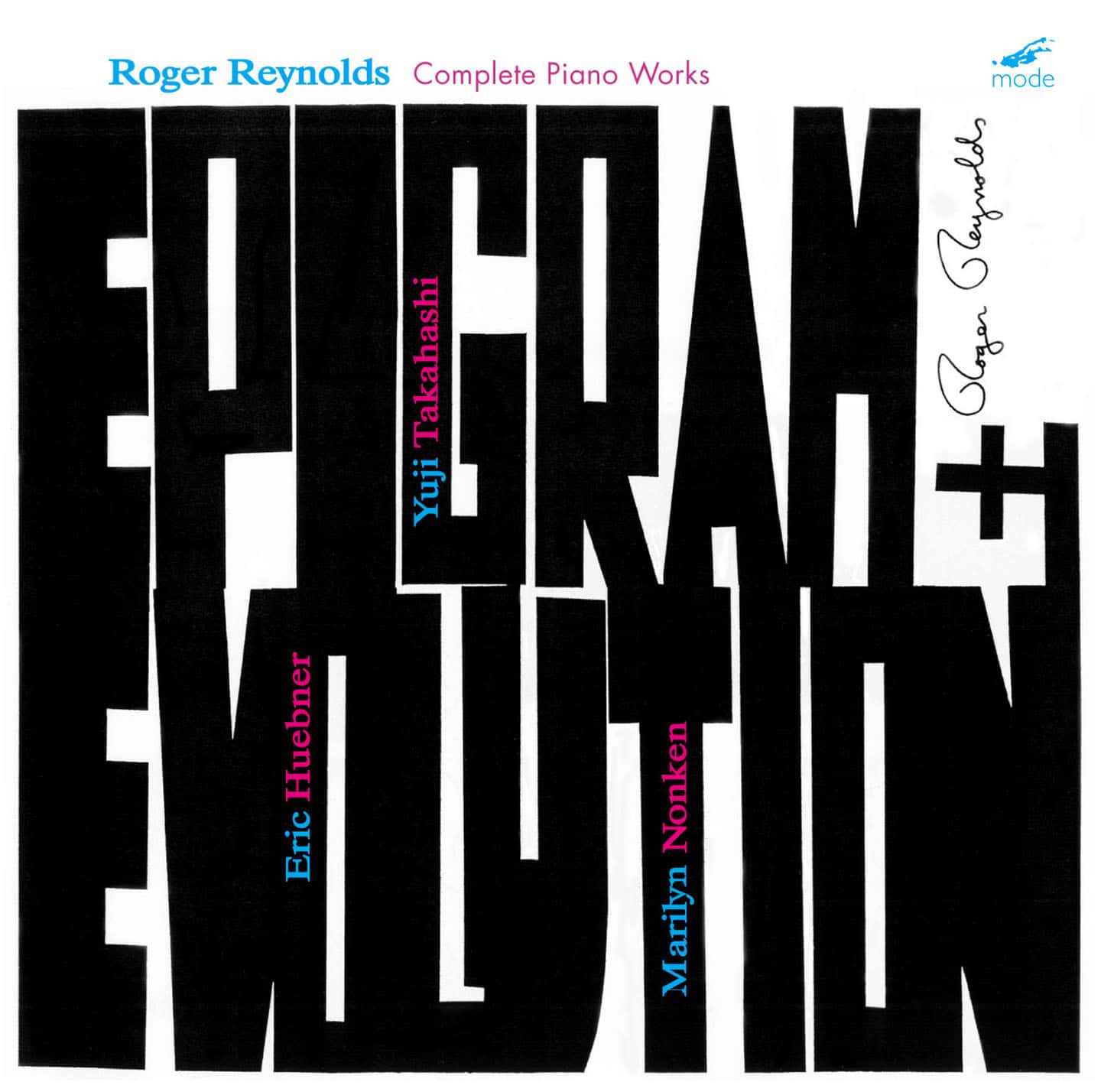Fantasy for Pianist (1964) 16:53
imAge/piano (2007) first recording 6:56
Yuji Takahashi, piano
Epigram and Evolution (1960) 7:09
Variation (1988) 26:39
imagE/piano (2007) first recording 3:33
Eric Huebner, piano
Traces (1968) 21:28
Yuji Takahashi, piano. Karen Reynolds, flute.
Lin Barron, cello. Allan Johnson, live electronics.
Less Than Two (1978) for 2 pianos, 2 percussionists and tape 20:47
Jean-Charles François and Delores Stevens, pianos
Daniel Dunbar and Daryl Pratt, percussion
The Angel of Death (1998-2001) for piano, chamber orchestra & computer processed sound 35:07
Marilyn Nonken, piano
The Slee Sinfonietta, Magnus Martensson, conductor.
These piano pieces were written at every turning point in Roger Reynolds’ creative life, marking his evolution. The music is driven by relentless attacks toward catharsis, but also bittersweet chords, and trembling, rolling, wandering or sweeping masses of sound. We feel as though we are being pushed around by forces beyond human imagination. This sense of being carried away by an uninterrupted undercurrent may be the image of the world we live in.
The featured pianists are the legendary Yuji Takahashi (who also contributed a rare new recording for the set), and contemporary music specialists Eric Huebner and Marilyn Nonken.
This specially priced 2-CD set combines new recordings with reissues of classic analog performances, newly transferred from the analog tapes and remastered for this release.
Epigram and Evolution, Reynolds’ earliest piano work was premiered at the ONCE Festival in Ann Arbor by Robert Ashley.
Reynolds moved to Europe in 1963, and Fantasy for Pianist marks the change of intellectual climate. Premiered at the Warsaw Autumn Festival by John Tilbury, it begins with a chordal whirlwind over explosive blasts, leading to ‘asynchronous tapping, resonance, and whirls. Experimental ways of playing are applied on the piano strings: plucking with a pick, wound string rasps, and harmonics produced by touching nodes on the struck strings.
Traces uses six loudspeakers surrounding the audience with amplified instruments and ring-modulated resonances. The piano part is is “traced” by a flute and cello involving timbre manipulation, with electronic shadows over them.
Less Than Two was written for pianists Gilbert Kalish and James Freeman, and percussionists Ray DesRoches and Richard Fitz, as a companion piece for George Crumb’s Makrokosmos III (Music for a Summer Evening). It was premiered, along with the Crumb piece, at The Library of Congress in 1979.
Reynolds’ architectural complexity culminates in Variation: a single movement following a preliminary graphic scheme, it allows room for playful and expressive flexibility left to the performer. It was premiered by Aleck Karis.
imagE/piano and imAge/piano are a part of recent project of writing pairs of short, complementary pieces for different instruments. The E in imagE stands for “evocative” and A in imAge for “articulate”, involving a composing technique based on montage and editing.
Liner notes by Yuji Takaha

